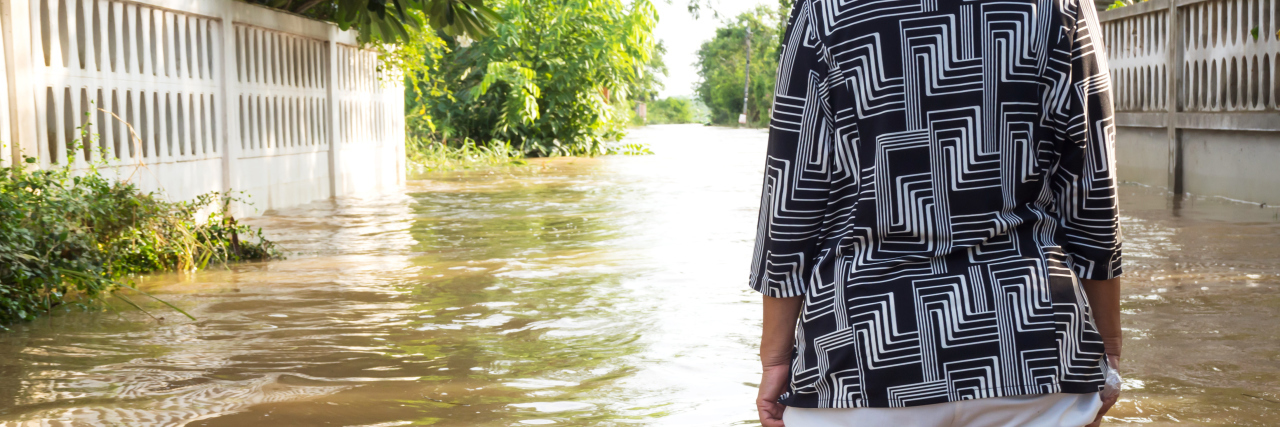Lately I’ve been collecting diagnoses like stamps on a world traveler’s passport. Only problem is, I never wanted to visit any of the places and I certainly didn’t want to stay there for life.
This menagerie of rare diseases happens to many of us in the primary immune deficiency (PI) community. Once the immune system becomes dysregulated and stops producing the immune response to protect from infections, a domino effect can occur where other parts start crashing one by one over time.
Since I was diagnosed with the common variable primary immune deficiency (CVID) in 2013, I’ve collected nearly a dozen other immune system-related diagnoses. However, the CVID diagnosis was by far the game-changer for my life. It’s like the doctor said “game-set-match” when he first wrote “common variable immune deficiency” on the top of my discharge paper. I remember the moment very clearly — I snapped a picture of the paper with my phone and texted it to my husband. We were already plenty familiar, since our son was given the same diagnosis in 2007 at the age of 6.
I spent the two years before my CVID diagnosis in complete and abject denial. I was literally sick all the time with one weird infection after another. Regular rounds of antibiotics did not work, so I’d need several rounds along with injections and sometimes IV antibiotics. Odd bacteria would culture out and doctors would look up at me from the report with confused faces so often that I came to expect it.
I had a career that I worked very hard to build and one in which I found identity and meaning. No way was some rare disease going to take that away from me … until it did. During the years prior to my diagnosis, which I now refer to as the “denial years,” all I wanted was to keep working and be “normal.” I was so afraid of losing that identity and financial security that comes with a very good job. Losing the ability to provide for myself and my family was terrifying.
I was luckier than some facing chronic illness, as my husband also had a good job. Still, it always took both of our incomes to make ends meet. How would my family survive without my job? The stress of facing this new life of severe chronic illness on one income was almost too much for our marriage.
All of the realities of losing my life as I had known it – as I had planned for it – came crashing down as I was handed that discharge paper with “CVID” scrawled across the top in barely legible “doctor handwriting.” My life quite literally flashed before my eyes.
Over the next few years, I tried to claw my way back to some sort of professional career – less hours, freelance, a position with less responsibility – and one by one, it became obvious that I simply was not well enough to work. Therapy helped a lot as I methodically worked though the stages of grief, always going back to the moment of diagnosis and the impact on my life – the way that one moment changed everything.
Since then, I’ve received nearly a dozen new diagnoses which taken separately should have rocked my world in the same way that the first one did, but oddly, they did not. Recently I’ve been thinking about why that should be the case.
Imagine this for a moment (I’ll use imagery familiar to this Louisiana-turned-Florida girl):
A hurricane comes and floods your home with two feet of water. Everything on the first floor level is just ruined. The antique furniture your grandparents passed on, the wedding and baby photographs on the bottom of the bookcases, the precious handwritten recipes and cookbooks … everything is just gone. You have lost all of your material possessions. Then a levee upstream breaks and another foot of water makes its way into your home. Another foot of water is now standing. Does the last foot make much of a difference? Probably not. A flooded house is a flooded house regardless of how many feet of water are present.
For me, it was the same with my body and my life. Once I was effectively disabled with the first incurable and lifelong rare disease, the others didn’t have the same impact. I had lost everything – my career, my independence, my health – so what difference did a few more diagnoses make in the big picture?
Psychologically and emotionally I felt the effects of these new diseases, but the overall impact on my life was minor. Yes, there was new pain, symptoms, medications, treatments and doctors, but those things were already part of my everyday reality. So the volume of the noise is ramped up, but the noise was already there. Tuning out noise is something I’ve learned to manage most days while at the same time, tuning in the sound of laughter.
In the beginning, all I could hear was the sound of loss, and now I’ve learned to also hear the sounds of joy.
After all, this is my one life and I aspire to truly live it well regardless of how many feet of water in which I stand.

